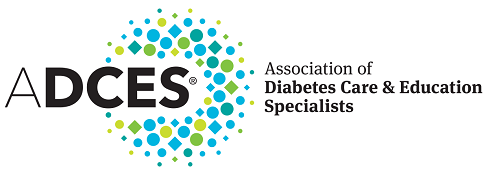
Diabetes Care and Education Competencies
Use these tools to create a roadmap for success in the specialty.

Diabetes Practice Competencies
A Roadmap for the Specialty
Maps show us what lie ahead and give us the information we need to create a plan to get there. The series of diabetes practice competency papers recently released by ADCES® provides a roadmap for members of the care team who are involved in caring for people with diabetes: the diabetes care and education specialist (DCES), diabetes community care coordinators and health care professionals whose primary focus isn’t diabetes.
DCES Practice Competencies
In 2020, the DCES practice competencies were revised to meet the current needs and future trajectory of the diabetes care and education specialty, with emphasis on language choice and the goals and pillars of the ADCES strategic vision.
Unique to this revision, we conducted a modified Delphi study to validate the updated model. The resulting DCES core competencies are divided into six key domains that underscore specific sets of knowledge, skills and abilities critical to the role of diabetes care and education specialists.
Purpose of the Delphi Study
- Serve as a master list of the foundational knowledge, skills and abilities to perform the role of diabetes care and education specialist.
- The four key times to implement DSMES services.
- Provide a framework for interprofessional practice that extends beyond disciplines
- Activate self-assessment for continual improvement of knowledge, skills and abilities
- Maintain a standard for the specialty, encouraging diabetes care and education specialists to work at the top of their scope of practice
- Inform stakeholders of the breadth and scope of the specialty.
Self-Assessment Worksheets
Create your own roadmap using
these worksheets to target key areas for growth and development.
Access
a breakdown of each domain with available ADCES education.
DCES Core Competencies
Diabetes Care and Education Specialists (DCESs) are experts who, as integral members of the care team, provide collaborative, comprehensive and person-centered care and education to people with diabetes and related conditions.
They include, but are not limited to, those with the credential of CDCES (certified diabetes care and education specialists) or BC-ADM® (board-certified advanced diabetes management) and similar roles specializing in diabetes.
These are the six DCES core competencies that diabetes care and education specialists need to have in order to be successful.
Practice Competencies for Diabetes Community Care Coordinators & Health Care Professionals
We have long held the position that all people who work in health care and community health settings should have sufficient knowledge of diabetes and the skills and ability required to provide safe and effective care. Once the DCES core competencies were established, dedicated ADCES members undertook a modified Delphi study, seeking to create diabetes practice competencies for additional members of the care team.
The purpose of this modified Delphi study was to develop professional diabetes care and education competencies that address prediabetes, diabetes and cardiometabolic conditions at the individual and population levels.
The targeted audiences for these expanded diabetes practice competencies included:
- Community workers who serve as a bridge between populations and the health care systems, and
- Point-of-care clinicians who care for people with diabetes and related conditions in the general health care system but who are not specialized in diabetes care and education beyond their current clinical training.
To learn more about the skill set necessary to effectively care for and educate people with diabetes and related conditions, read the ADCES-implemented nationally modified Delphi study.
Diabetes Community Care Coordinator Practice Competencies
Diabetes Community Care Coordinators are members of the diabetes care team focused on linking individuals to resources, building relationships and supporting people with, affected by, or at risk for diabetes and cardiometabolic conditions.
They include, but are not limited to, community health workers (CHW), health educators/coaches, medical assistants (MA), certified nursing assistants (CNA), licensed practical nurses (LPN), registered nutrition/dietetic technicians (NDTR), military medics and corpsmen, pharmacy assistants/technicians, physical therapy assistants, nutritionists, dental hygienists, emergency medical technicians (EMT) and other similar roles.
These are the two practice competencies that Diabetes Community Care Coordinators need to have in order to be successful.
Health Care Professional Practice Competencies
Health care professionals are members of the diabetes care team who interact with people with diabetes and related conditions but whose primary focus is not diabetes.
They include, but are not limited to, registered nurses (RN), registered dietitian nutritionists (RDN), pharmacists and other similar roles.
These are the two practice competencies that health care professionals need to have in order to be successful.
Professional Competencies for Diabetes Technology Use in a Care Setting
As diabetes technologies continue to advance at a rapid pace, it’s necessary for health care professionals to stay current with treatment goals and practice guidelines. In 2022, we developed a comprehensive set of role-based competencies for DCESs, non-DCES health care professionals and staff.
Learn More About the CompetenciesJob Description Template
Use this template to create a comprehensive job description based on the competencies for diabetes care and education specialists.
Build Your Career in Diabetes Care and Education: Utilizing the ADCES Competencies For Future Growth
Co-author Sandi Burke joins us to break down how you can utilize the revised competencies as a master list of skills for thoughtful self-assessment and strategic professional development in this podcast episode on The Huddle.


